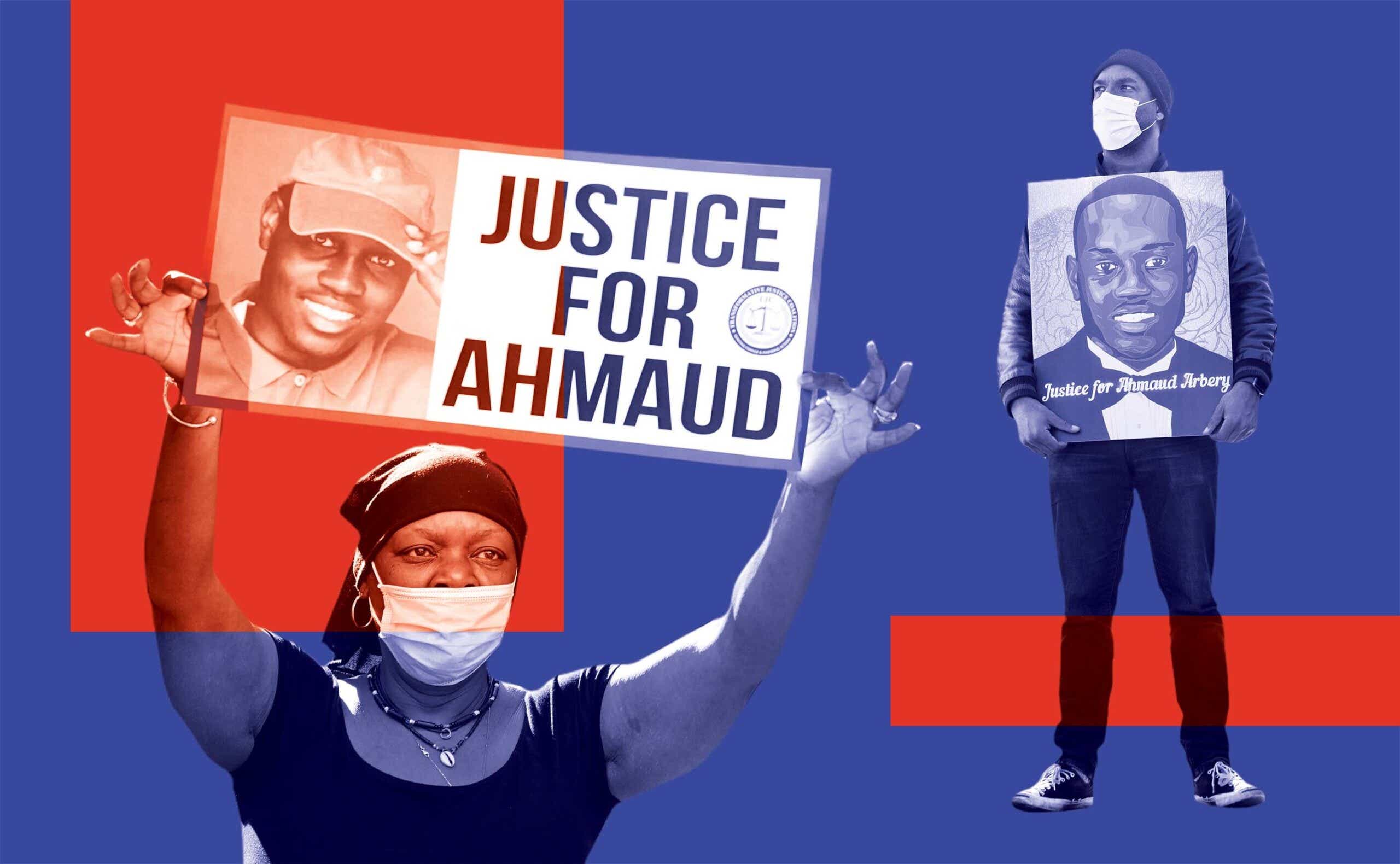The three men convicted of gunning down Ahmaud Arbery are back on the stand this week — this time to face federal hate crime charges. Here’s a look at where the trial stands so far.
Background on Ahmaud Arbery's killers' hate crime trial
In February 2020, Gregory McMichael, his son Travis McMichael, and their neighbor William Bryan, chased and shot Arbery, 25, as he jogged through his Georgia neighborhood. The shooting was caught on video and was widely viewed, sparking a public outcry.
In November, the three white men were convicted in state court of murdering the 25-year-old Black man and sentenced to life in prison. During that trial — even as a racial reckoning in the U.S. unfolded, inspired in part by Arbery’s tragic slaying — prosecutors were careful to avoid centering race.
Now, in federal court, race takes center stage. In the hate crime trial, which began this week, prosecutors will attempt to prove to the jury that the murder was motivated by racism.
The case against Gregory McMichael, Travis McMichael, and William Bryan
Prosecutors have presented some ugly evidence. An FBI analyst testified that the defendants had posted dozens of racist social media posts and messages. One said in a text that he didn’t want his daughter to date a Black man and called him the N-word. Another spoke about killing Black people and wrote that he loved his job because “zero [N-words] work with me.” During opening arguments, the prosecution also said it planned to show that Travis McMichael had referred to Black people as “animals,” “monkeys,” and “subhuman savages.”
“At the end of the day, the evidence in this case will prove that if Ahmaud Arbery had been white, he would have gone for a jog and been home in time for Sunday supper,” one prosecutor said. “Instead he ended up bleeding to death, alone and scared, in the middle of the street.”
Lawyers for the defense acknowledged that their clients have said racist things, but maintained that they didn’t racially profile Arbery and that they pursued him because they suspected he was behind a series of break-ins throughout the neighborhood.
What legal observers are saying
Hate crimes are tricky to prove in court. The prosecution needs to convince the jury that the defendants were motivated to hurt Arbery specifically because of his race, but the three men have repeatedly said in court that they pursued him because they thought he was behind a string of burglaries.
“This is going to be a difficult case to prove,” Deval L. Patrick, who led the DOJ’s Civil Rights Division under President Clinton, told the New York Times. “It doesn’t mean the case isn’t there to be made.”
But civil rights attorney and NYU professor Elizabeth OuYang told Insider that the prosecution is on the right track by laying out the many instances of racist language the defendants have used. “It goes to [the defendants’] motive in the sense of their predisposition and attitudes,” she said.









